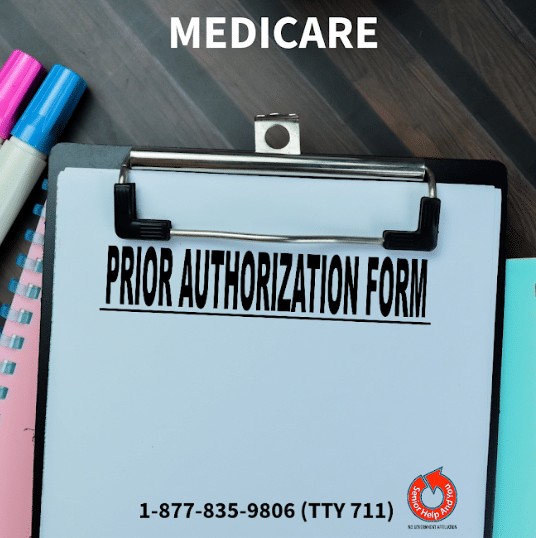
If your Part D plan refuses to cover the cost of your medication, you should receive a notice from the pharmacy called “Medicare Prescription Drug Coverage and Your Rights.” This notice will provide you with instructions on how to file an exception request with your plan, which is the first step in the appeals process. It’s important to note that this initial notice is not a formal denial.
Whether you have a stand-alone Part D plan (PDP) or a Medicare Advantage Plan with Part D coverage, you can follow the steps below to learn more about why your drug was not covered and begin the appeal process.
Step One: Contact Your Plan Provider
Find out why your plan denied coverage for your medication. They should correct any errors in the plan.
Questions To Ask Your Plan Provider:
- Is my drug on the plan’s formulary?
- Does my drug have a coverage restriction (such as step therapy or quantity limits) that I need to meet before I can get my drug?
- Am I using an in-network pharmacy?
Your Part D plan’s phone number is written on the back of your membership card.
Step Two: Speak to your prescribing doctor or other provider about your options.
Questions To Ask Your Doctor or Other Provider:
- Am I using an in-network pharmacy.
- Am I able to try an alternative drug on the formulary.
Step Three: Switching to Another Drug
If switching to another drug is not an option, you can file an exception request. Ask your doctor to write a letter of support to send to your plan requesting an exception to the plan’s rules. This letter should explain why you need the drug and, if possible, how other medications to treat the same condition are dangerous or less effective for you.
If you or your doctor feel that your health could be seriously harmed by waiting for the standard timeline for a decision, you can request an expedited decision request. If your doctor supports your decision to file an expedited exception request, the plan must follow the accelerated timeline.
Here are some tips to communicate effectively with your insurance plan:
- Carefully read any documents you receive from the insurer before calling.
- Always write down the name and telephone extension of the plan representative handling your call. If someone is unable or unwilling to help you or provide you with needed information, ask them to speak to a supervisor.
- Take notes, including the date and time of the call, the information you were given, and what you were told to do next.
- If the insurance representative asks you to send something, do it within a day or two. This will ensure smooth progress. If you cannot act immediately, ask if there is a submission deadline.
- Keep a copy of anything you send. Sometimes, you may want to send materials via certified or registered mail. If your plan or any plan representative is unhelpful, or if they refuse to answer your questions, call 1-800-MEDICARE (633-4227), and ask to file a complaint against your plan.
- We, at Senior Help & You, can either be your first point of contact, your last point of contact or any point in between. Simply call us at 1-877-835-9806 (TTY 711).
Source: Medicare Rights Center


